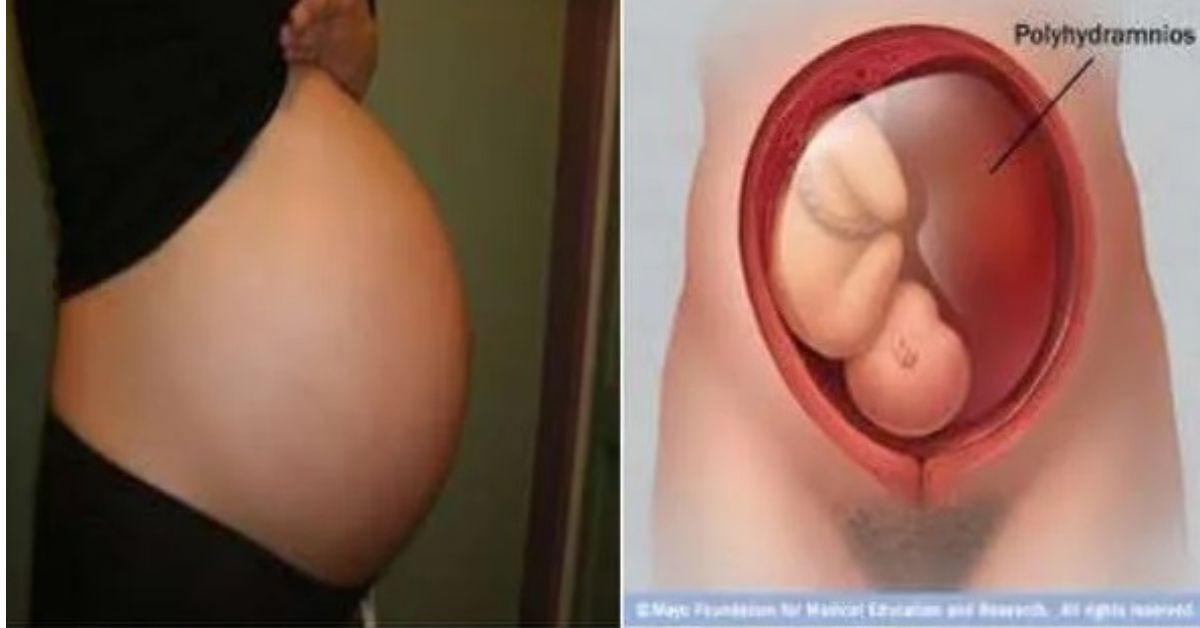
Polyhydramnios treatment in Jalandhar
Polyhydramnios is a medical condition characterized by an excessive accumulation of amniotic fluid in the amniotic sac during pregnancy. The amniotic fluid is the fluid that surrounds and protects the developing foetus within the uterus.
Causes of polyhydramnios can vary, and sometimes the exact cause is not identified. Some potential causes include:
- Maternal diabetes: Women with diabetes, both pre-existing and gestational, may be at an increased risk of polyhydramnios.
- Foetal anomalies: Certain foetal abnormalities, such as gastrointestinal or central nervous system malformations, can lead to an inability to swallow amniotic fluid, resulting in its accumulation.
- Multiple pregnancies: Polyhydramnios is more common in pregnancies with twins, triplets, or other multiples.
- Genetic factors: Some genetic conditions may be associated with polyhydramnios.
- Maternal health conditions: Conditions such as preeclampsia, maternal anaemia, or certain infections can contribute to polyhydramnios.
- Placental issues: Conditions affecting the placenta, such as a partial molar pregnancy, may be linked to polyhydramnios.
Polyhydramnios is usually diagnosed through ultrasound examinations that measure the amniotic fluid index (AFI) or the deepest vertical pocket (DVP). Mild cases may not cause significant issues, but more severe cases can lead to complications such as preterm Labor, premature rupture of membranes, and an increased risk of malpresentation during Labor.
Management and treatment depend on the underlying cause and the severity of the condition. In some cases, close monitoring and observation may be sufficient, while more severe cases may require medical interventions or delivery of the baby, depending on the gestational age and the overall health of both the mother and the foetus. It's important for pregnant individuals with polyhydramnios to receive proper medical care and follow the guidance of their healthcare providers.
Prevention : Preventing polyhydramnios may not be entirely possible, as it is often associated with underlying medical conditions or complications during pregnancy. However, there are certain measures and practices that may help reduce the risk of developing polyhydramnios or managing its impact:
- Regular Prenatal Care: Attend all scheduled prenatal appointments to monitor the health of both the mother and the baby. Early detection and management of any potential issues can be crucial.
- Controlled Blood Sugar Levels: For women with diabetes, maintaining well-controlled blood sugar levels is essential. Proper management of gestational diabetes or pre-existing diabetes can reduce the risk of complications, including polyhydramnios.
- Monitoring Foetal Well-being: Regular ultrasound examinations can help monitor the amniotic fluid levels and assess the well-being of the foetus. Early detection of any abnormalities allows for timely intervention.
- Treating Underlying Conditions: If polyhydramnios is associated with an underlying condition, such as foetal anomalies or maternal health issues, addressing those concerns may help manage or prevent the excessive accumulation of amniotic fluid.
- Hydration and Nutrition: Maintaining a healthy and balanced diet, staying well-hydrated, and following the recommendations of healthcare providers can contribute to a healthy pregnancy.
It's important to note that some cases of polyhydramnios may occur without a clear underlying cause. In such situations, managing the condition and its associated symptoms becomes the primary focus. Treatment may involve amnioreduction (removing excess amniotic fluid through a needle) in severe cases.
Always consult with your healthcare provider for personalized advice and guidance based on your individual health and pregnancy situation.
Medications: In some cases, medications such as indomethacin may be prescribed to reduce amniotic fluid production. However, the use of indomethacin is generally limited to cases where there is an underlying condition like foetal abnormalities or twin-to-twin transfusion syndrome.
Potential risk of pregnancies with polyhydramnios
- Preterm Labor:
- Polyhydramnios may increase the risk of preterm Labor and delivery.
- Malpresentation:
- The excess amniotic fluid may increase the likelihood of the baby assuming an abnormal position for delivery, such as breech presentation.
- Placental Abruption:
- There may be an increased risk of placental abruption, where the placenta separates from the uterine wall before delivery.
- Cord Prolapse:
- The umbilical cord may slip through the cervix ahead of the baby (cord prolapse), which can lead to compression and compromise of blood flow to the foetus.
- Postpartum Haemorrhage:
- The risk of postpartum haemorrhage may be higher in women with polyhydramnios.
- Foetal Distress:
- In some cases, polyhydramnios may be associated with an increased risk of foetal distress during Labor.
- Increased Risk of Congenital Anomalies:
- Polyhydramnios can sometimes be associated with congenital anomalies, although it is often idiopathic (of unknown cause).
- Maternal Respiratory Issues:
- The excessive amniotic fluid may cause compression of the maternal lungs, leading to respiratory difficulties.
It's crucial for healthcare providers to monitor and manage polyhydramnios appropriately, taking into account the underlying cause and the overall health of both the mother and the foetus. Treatment may involve close monitoring, lifestyle modifications, and in some cases, medical interventions such as amnioreduction (removing excess amniotic fluid). The specific management plan will depend on the severity of polyhydramnios and the presence of any associated complications. Pregnant individuals with polyhydramnios should receive thorough prenatal care and discuss any concerns or questions with their healthcare teams . You Can also contact us at Chawla Nursing Home and Maternity Hospital, Jalandhar.
Dr. Anupma Chopra (Fertility Specialist)
Chawla Nursing Home & Maternity Hospital, Jalandhar.

